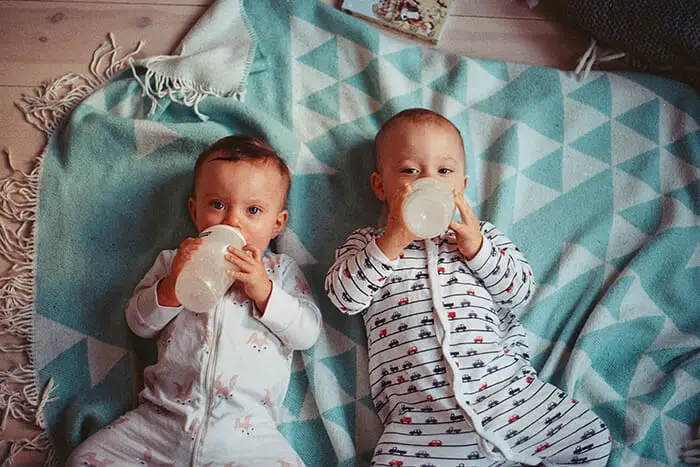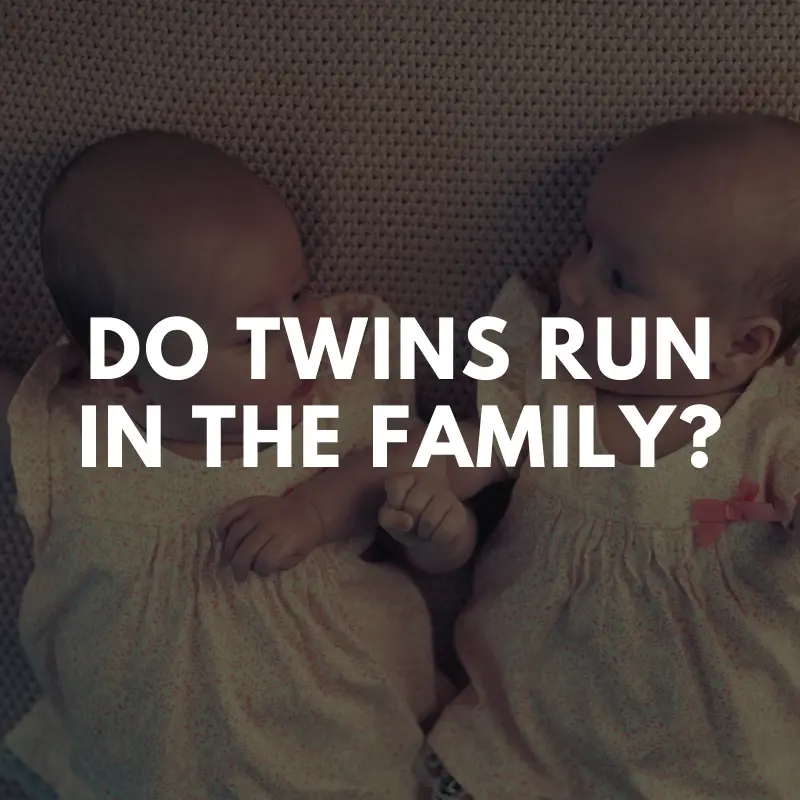Affiliate Disclosure – This post may contain affiliate links where we may receive compensation if you purchase products linked below. As an Amazon Associate, I can earn from qualifying purchases. This doesn’t cost you anything and helps keep our little blog running. Read our privacy policy for further information.
Picture this: The big day is coming closer. You schedule an appointment a few weeks before you’re expected to be due and your doctor gives you the news: you’re going to have twins! You feel like your heart is going to explode: one was enough and now two? You sit back and ponder on how life is going to be like with twins and go back to your family roots and realize that your grandfather was a twin! You go online to rummage through mom forums and healthcare websites to verify if a “twin-gene” exists and find conflicting information. It’s alright! Even the field of science can be confusing and inconclusive at times and there’s no reason to fret!
To answer the question simply: Twins can run in the family; but it depends on half a dozen things, which we’ll simplify.

What Type of Twins Run in the Family?
Basically, fraternal twins (that’s non-identical twins for those in the dark) tend to run in the family. This happens due to some women having a gene type that releases more than one egg during ovulation. Hyperovulation isn’t very common, given that only 3.5% of live births in the US are twins.
Given hyperovulation can only occur in females, this is where you begin to see twins skipping a generation. For example if your father is a twin, your son/daughter is more likely to give birth to twins than you are. This hinges on whether you have a son or a daughter: hyperovulation means very little in the grander scheme of things when it’s a boy but can make a difference if you have a girl.
As a twin parent myself who has boys, it’s more likely that they won’t have twins. Whereas if I had twin girls, it’s likely my daughter could have given birth to twins, and if my boys eventually have a daughter one day, he may pass those recessed genes to his daughter, which in turn will probably lead to a dynamic duo. This is pretty much the reason why the saying that twins skip a generation became popular.
In summary – If you’re a twin and have a boy, the chances of the boy carrying the twin gene and having twins is very low. If you’re a twin and have a girl, the chances of having twins increases due the chance of releasing more than one egg during ovulation.
Do Identical Twins Run in the Family?
All of the information we’ve given so far is for fraternal twins. Identical twins are a whole other ball game.
Unlike fraternal twins, where two eggs and sperms are involved, identical twins are born when the already fertilized cell splits into two to become two. This is more of an event based on chance than genetics or science, so it’s generally accepted that this can’t really be predicted.
What Increases your Chance of Having Twins?
When it comes to fraternal twins, there are certain factors that can help facilitate the likelihood of their conception.
Aside from genetic factors, we know that:
- Being older than 35
- Are of African descent,
- Taller and heavier than average
- Have been taking fertility medication
- Have had a child before
Are all contributing factors that have been known to make a little bit of an impact and boost the chances of conceiving a couple. Or more too, who knows? Whatever it is, we hope that you get to have two beautiful babies and have a healthy and happy post-delivery!
Affiliate Disclosure – This post may contain affiliate links where we may receive compensation if you purchase products linked below. As an Amazon Associate, I can earn from qualifying purchases. This doesn’t cost you anything and helps keep our little blog running. Read our privacy policy for further information.

My name’s Alex and I’m a husband, dad to beautiful identical twin boys, cyclist, photographer and connoisseur of great coffee!
Help I’m Having Twins has been created for me to share what I found useful as a new parent and dad to twins.

